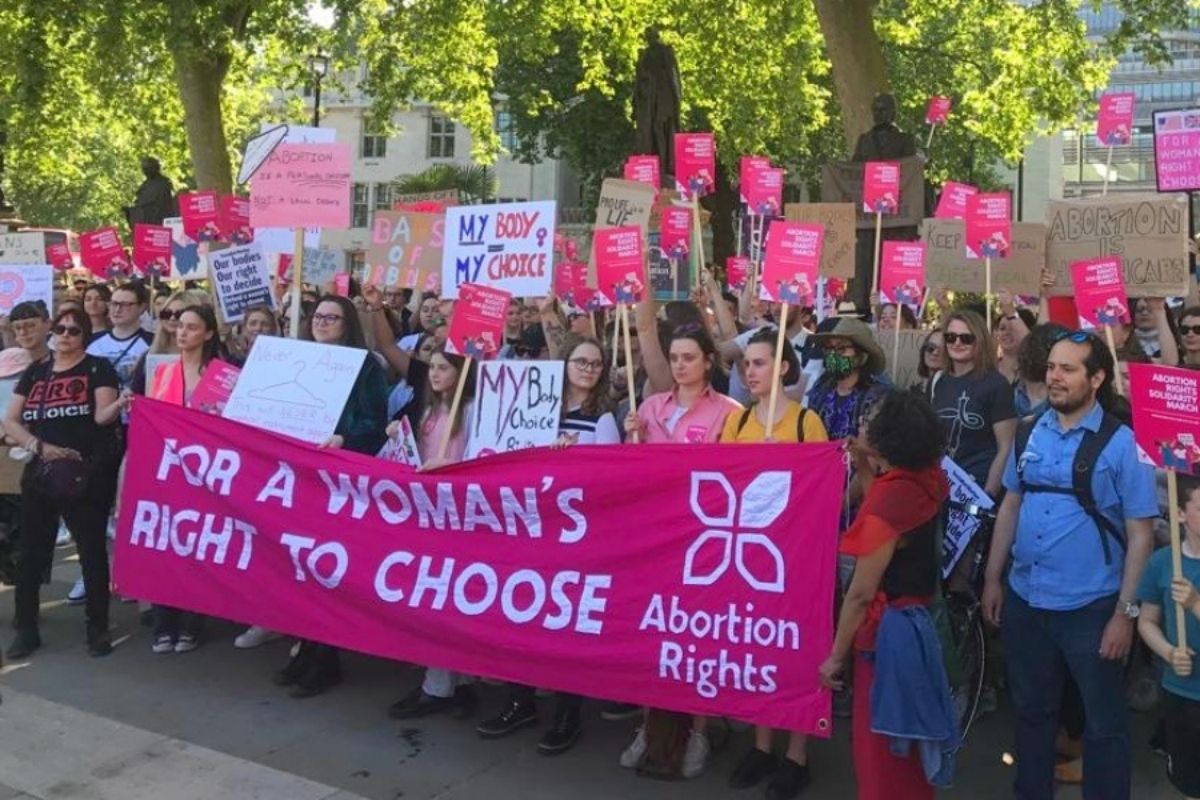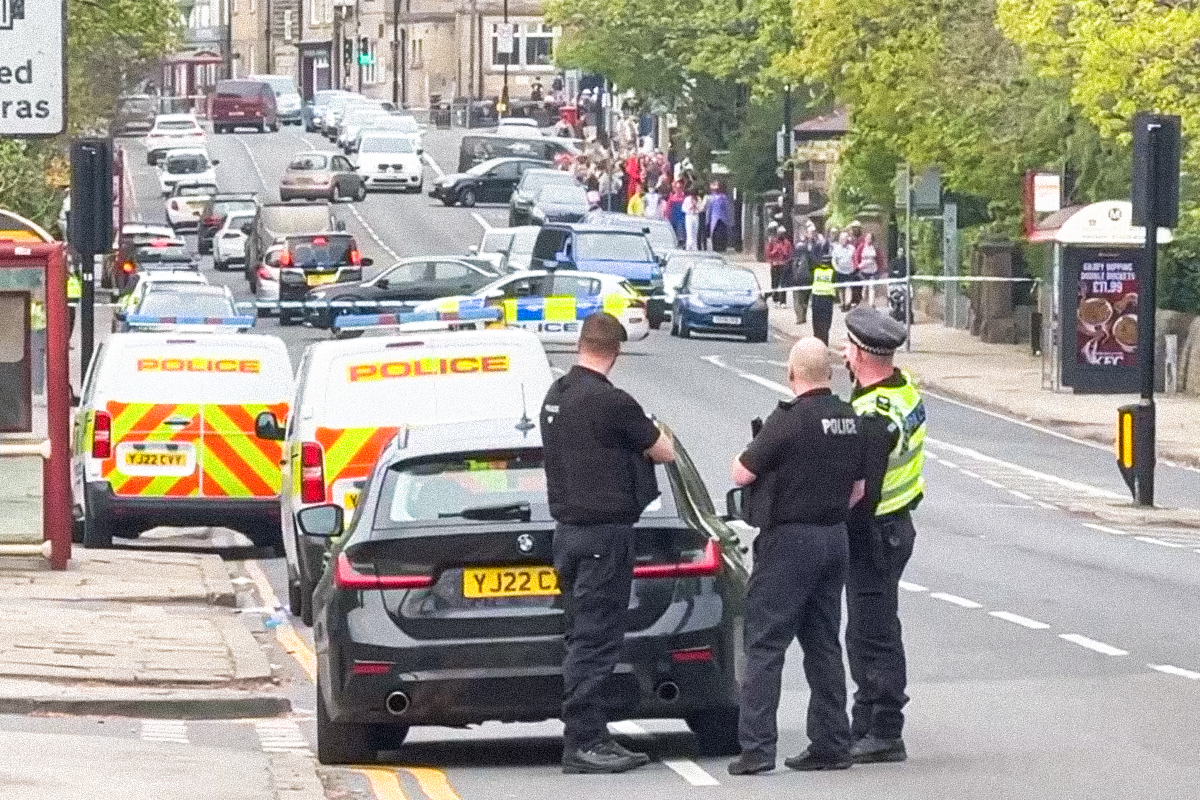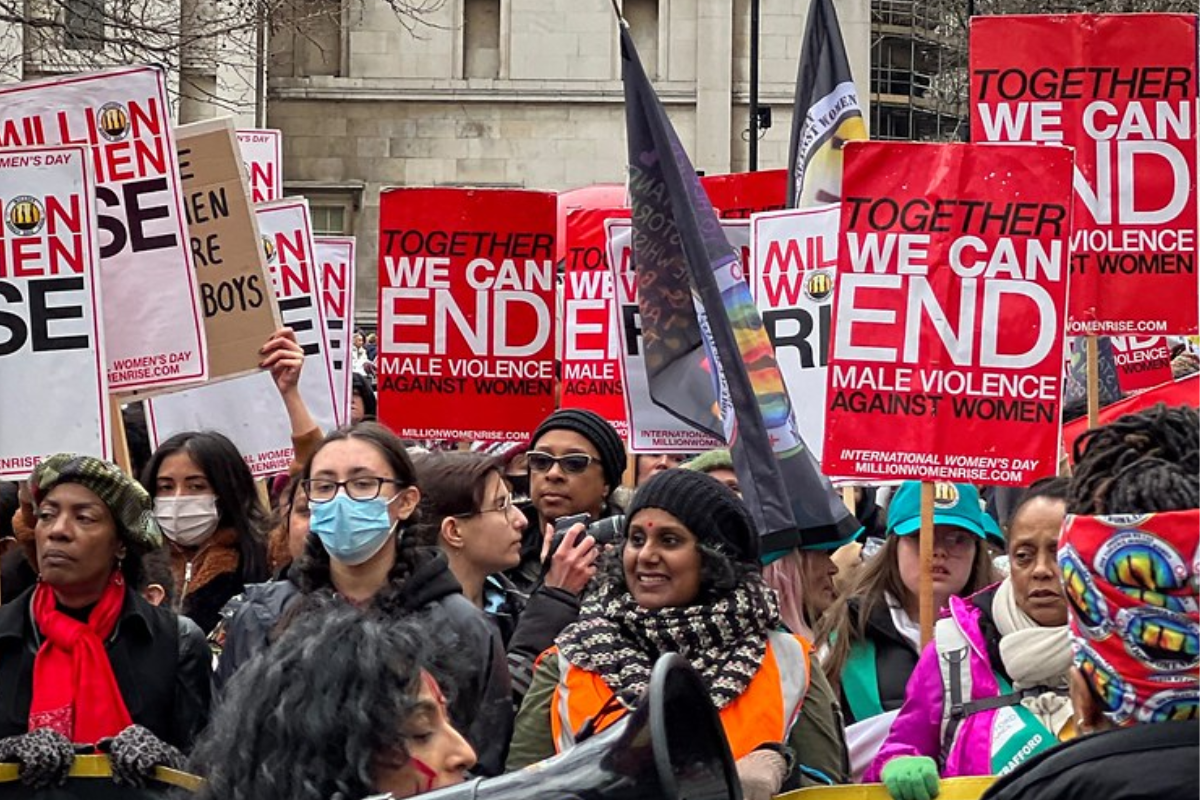News that abortion rights in the USA could soon be repealed has provoked a backlash of protest across the globe, including in Britain. Our freedoms will never be secure under capitalism. The fight for liberation must be a fight for revolution.
Recent revelations that the US Supreme Court is threatening to overturn the landmark Roe vs Wade case, which protects women’s right to abortion, have sent shockwaves of horror across the USA – and across the world.
If Roe vs Wade is overturned, abortion will immediately be banned in 22 states, with a further four (where heavy restrictions are already in place) likely to follow.
Overnight, millions of women in the US could be stripped of their right to choose; a right that has been in place for almost half a century, since the historic case came into effect in 1973.
Fragile freedoms
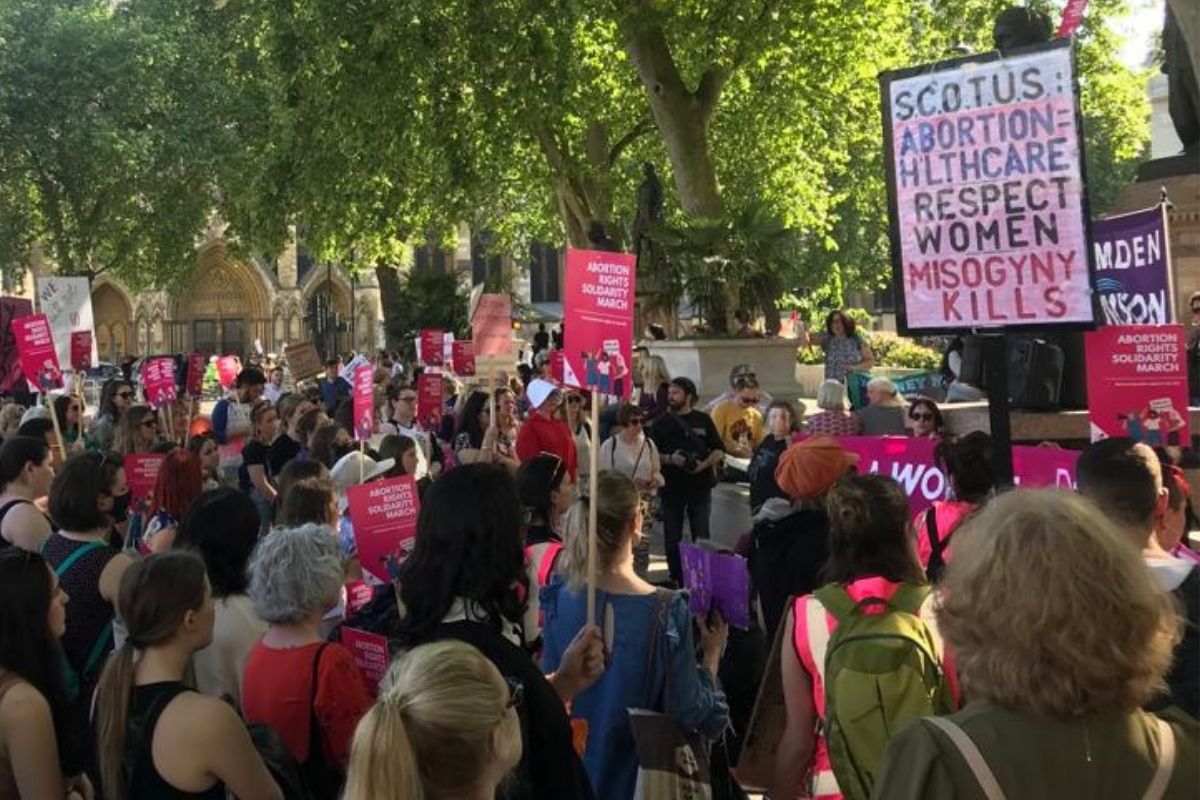
This devastating bombshell has brought into sharp focus how precarious conditions are for women across the world; how fragile our hard-fought freedoms – won through generations of struggle – really are under capitalism.
In recent decades, the general trend has seemingly been one of progress. Inspiring mass movements in Ireland and Argentina (in 2018 and 2020, respectively) have achieved success in fighting to legalise abortion, for example, landing powerful blows against the establishment.
But as capitalism descends ever-further into crisis, and the class struggle sharpens, these rights are increasingly coming under attack, and the gains of the past are being rolled back.
Bonfire of rights
The ruling class in the USA (and elsewhere), for example, is cynically seeking to whip up a ‘culture war’ in order to divide the working class and deflect attention away from the failures of their system.
In the process, basic rights – such as control over our own bodies – are being placed on the bonfire.
Similarly, women fleeing the war in Ukraine and seeking refugee in Poland are suddenly faced with the harsh reality of the latter’s reactionary laws around abortion and reproductive rights.
Violence against women has also become an international epidemic, with domestic abuse and femicides on the rise in recent years due to the coronavirus crisis.
Austerity and access
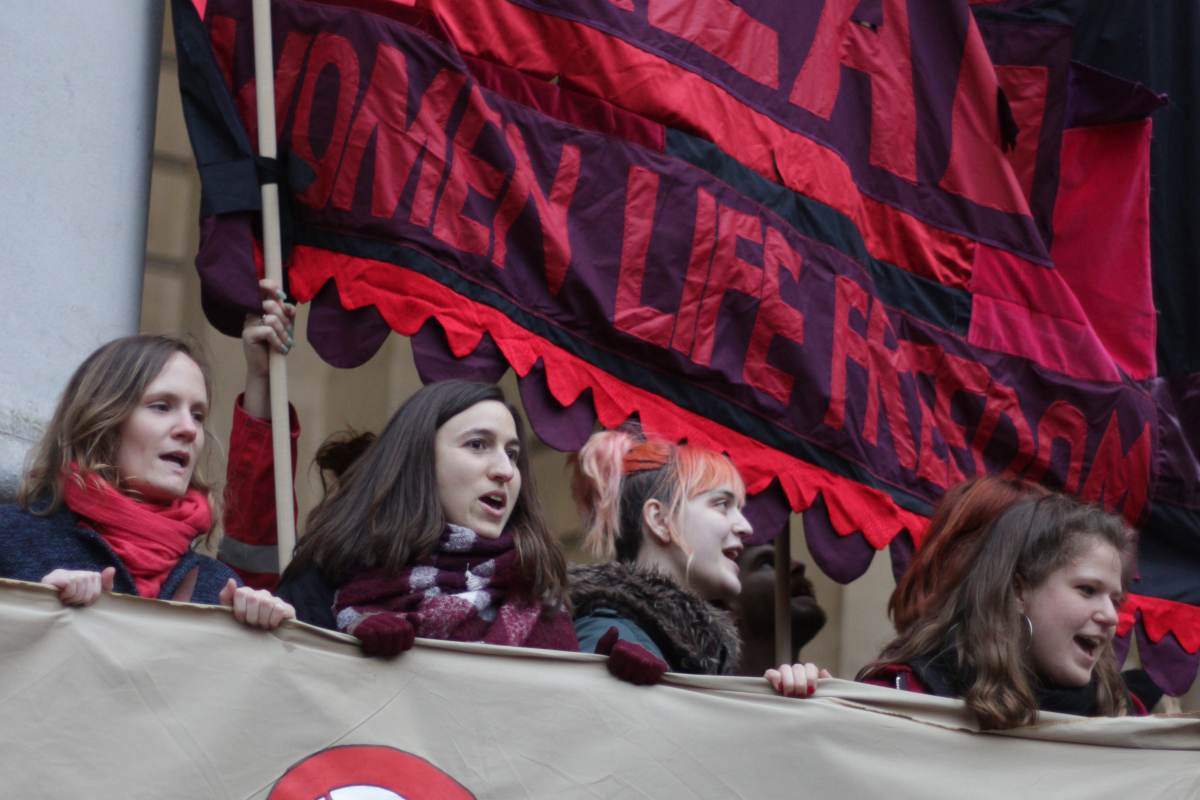
Even where legal rights have been won, deteriorating healthcare systems, ravaged by austerity and privatisation, alongside rampant inflation and declining real incomes, mean that such rights are little more than words on paper for working-class women.
In the Republic of Ireland, for example, access to abortion services remains limited: provided by just one-in-nine GPs in Ireland, and in just over half of the country’s maternity hospitals. The same is true in the North of Ireland, three years after terminations became legal.
In the USA, meanwhile, not only will women in the most repressive states be left in the desperate position of having to find the money to travel to so-called ‘haven’ states in search of a safe abortion; but even for women in places where this right is protected, actually getting an abortion will become increasingly difficult, in the absence of a fully-funded public healthcare system.
Liberation and revolution
The struggle for the full material liberation of women must therefore be linked to the struggle to overthrow capitalism.
Only united class struggle for socialist revolution can bring an end to the oppression of women once and for all – and guarantee us genuine control and freedom over our lives and bodies.
London solidarity demo
Socialist Appeal supporters
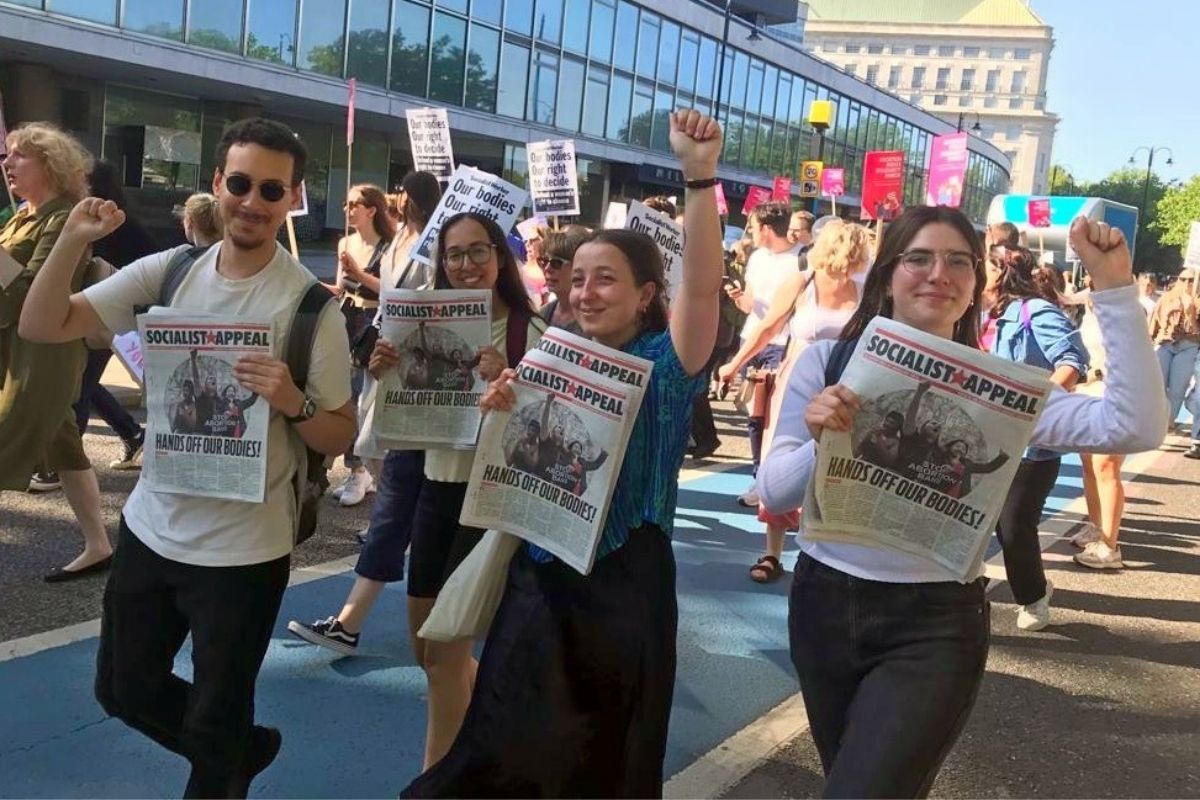 This weekend, thousands of workers and youth across the USA took to the streets to protest against the ruling class’ latest attack on abortion rights.
This weekend, thousands of workers and youth across the USA took to the streets to protest against the ruling class’ latest attack on abortion rights.
These protests have spread across the world. And in London on Saturday afternoon, over 200 people gathered for a solidarity demo outside Parliament Square.
This rally was filled with a mood of anger, with many of the protesters holding homemade placards with slogans such as “I’m a woman, not a womb” and “My body, my choice”.
Solidarity and struggle
Also at the protest were a sizable number of Americans who have moved to the UK. One such attendee told us that she felt angry and upset, and that she was worried of the impact this shocking move by the Supreme Court would have on her friends back home.
She told us about her mother, who had been involved in the abortion rights movement in the 1960s, and who was now back on the streets again over this same issue half-a-century later. “It’s just insane that we still have to protest for this right.”
A couple of speeches were made in Parliament Square before the crowd marched to the US embassy.
Speakers not only expressed solidarity with the protests in the USA, but also highlighted that this is a struggle that is taking place in many parts of the world.
One of the speakers, Hannah Barham-Brown from the Womens Equality Party, said: “We come together in solidarity with our sisters in the US, Poland, Brazil, El Salvador, Egypt, and all countries across the world where access to safe abortion is restricted or under threat.”
Lives at risk
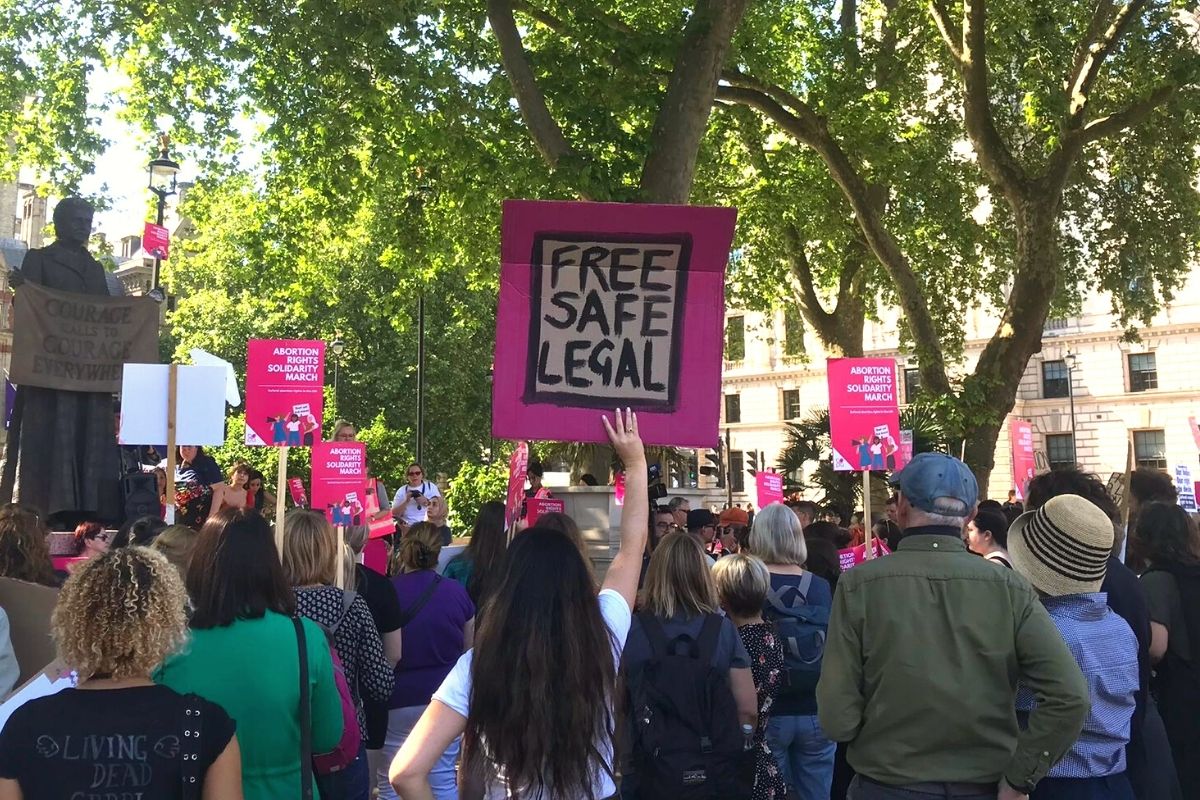
Several speakers rightly pointed out that a ban on abortions won’t stop abortions from happening, but will only make it more dangerous for women to have them.
If the ban goes through, many women will be forced to risk their health – and even their lives – in terminating unwanted pregnancies.
Many contributions therefore raised the need for accessible abortion services to be part of a fully-funded healthcare system.
After the speeches outside Parliament, the demo marched towards the US embassy. During the march, we spoke to one protester called Charlotte about her thoughts on the Supreme Court’s attempt to overturn Roe v. Wade.
“It made me scared,” Charlotte told us. “But at the same time, I was not surprised that it happened. It seems society is no longer progressing, but that we instead are going backwards.”
She also pointed out the hypocrisy of the US establishment and of western political leaders. “They call themselves the land of the free, but at the same time take away the democratic right to choose for half of the population.”
Class question
The threat of seeing Roe v. Wade overturned has shown how fragile our rights are under capitalism.
Many of the people we spoke to, meanwhile, pointed out that even in places where women still have the right to choose on paper, they might still need to travel hours to the nearest clinic, or cannot afford to pay for the procedure. It is therefore working-class women who will suffer the most from this ban.
In these conversations, and throughout the protest, Socialist Appeal comrades raised demands not only for full reproductive rights – up-to-and-including abortion – but also for universal access to abortion services, as part of a fully-funded public healthcare system and a socialist plan of production.

